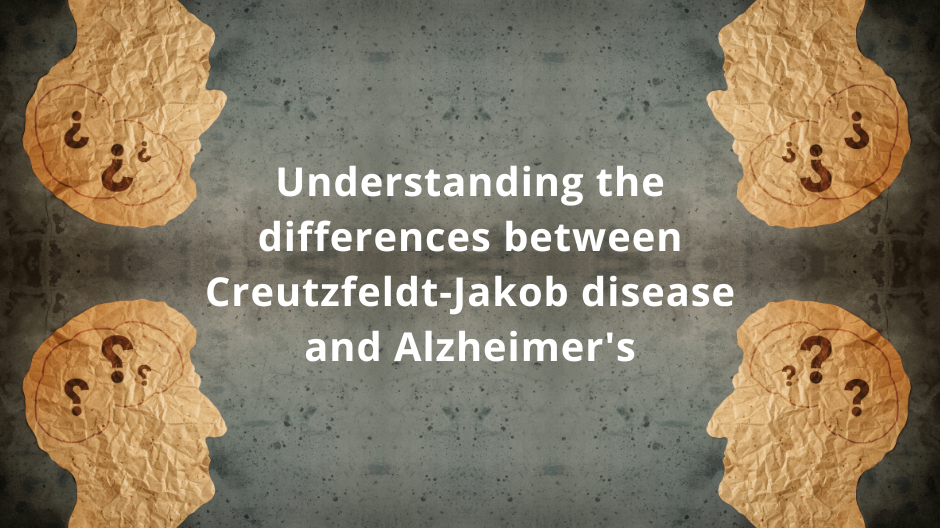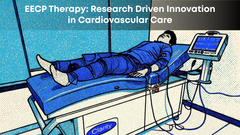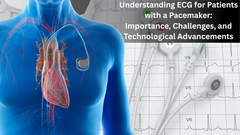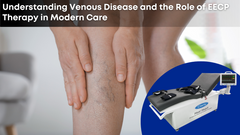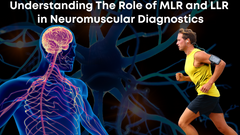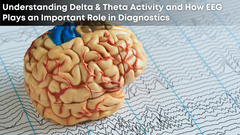Understanding the differences between Creutzfeldt-Jakob disease and Alzheimer's
Degenerative brain diseases refer to a group of conditions that progressively damage the brain and nervous system over time. These diseases can affect movement, coordination, thinking, memory, and other cognitive functions.
Creutzfeldt-Jakob disease (CJD) and Alzheimer's disease are both degenerative brain diseases that can affect older adults. However, they differ in their cause, symptoms, and progression.
Causes of CJD and Alzheimer's disease
CJD is caused by abnormal prion proteins that form in the brain, which cause damage and death of brain cells. CJD typically causes dementia, along with muscle stiffness, jerky movements, and visual disturbances. The disease progresses rapidly, with symptoms appearing within weeks to months. There is no cure for CJD, and treatment focuses on managing symptoms.
Alzheimer's disease results from the build-up of amyloid plaques and tau tangles in the brain, leading to brain cell damage and death. The progression of Alzheimer's disease is usually slow, with symptoms developing gradually over several years. The most common early symptom is memory loss, followed by problems with language, mood changes, and difficulty with daily activities.
While there is currently no cure for Alzheimer's disease, there are medications and lifestyle changes that can help manage the symptoms and slow the progression of the disease.
What are the symptoms of CJD and Alzheimer's disease?
The symptoms of Creutzfeldt-Jakob disease (CJD) and Alzheimer's disease can be different, although they can both cause cognitive impairment and dementia. Here are some common symptoms for each:
Symptoms of Creutzfeldt-Jakob disease (CJD):
> Rapidly progressive dementia: CJD can cause a rapid decline in cognitive function, memory, and thinking ability.
> Muscle stiffness and jerky movements: CJD can cause muscle stiffness, twitching, and jerky movements, which can be noticeable in the limbs, face, or body.
> Visual disturbances: CJD can cause visual disturbances, such as double vision, blurred vision, and problems with the coordination of eye movements.
> Mood changes: CJD can cause changes in mood, such as anxiety, depression, and irritability.
> Difficulty speaking: CJD can cause difficulty speaking, slurred speech, or problems with articulating words.
Symptoms of Alzheimer's disease:
> Memory loss: Alzheimer's disease can cause difficulty remembering recent events, names, and conversations.
> Language problems: Alzheimer's disease can cause problems with language, such as difficulty finding the right words or following a conversation.
> Changes in mood and behaviour: Alzheimer's disease can cause changes in mood, such as anxiety, depression, or irritability, and changes in behaviour, such as apathy, social withdrawal, or aggression.
> Disorientation: Alzheimer's disease can cause confusion about time, place, and person, leading to getting lost in familiar places.
> Difficulty with daily activities: Alzheimer's disease can cause difficulty with daily activities, such as dressing, bathing, and cooking.
What are the effects of CJD on the daily life of an individual?
Creutzfeldt-Jakob disease (CJD) can profoundly impact a person's daily life, as the symptoms can progress rapidly and affect multiple aspects of their functioning. Some of the effects of CJD on daily life can include:
> Cognitive impairment: CJD can cause a decline in cognitive function, making it difficult to perform daily activities, such as managing finances, preparing meals, and keeping up with personal hygiene.
> Mobility impairment: CJD can cause muscle stiffness and jerky movements, making walking or performing other physical activities difficult.
> Communication difficulties: CJD can cause difficulty speaking, slurred speech, or problems with articulating words, which can affect communication with others.
> Visual disturbances: CJD can cause visual disturbances, such as double vision, blurred vision, and problems with coordination of eye movements, making it difficult to perform tasks that require visual acuity.
> Emotional and behavioural changes: CJD can cause mood changes, such as anxiety, depression, and irritability, affecting social functioning and relationships.
Special care institutions or grants for people suffering from Creutzfeldt-Jakob disease
Special care institutions, such as hospice care, may also be necessary to provide round-the-clock care and support for individuals with CJD. In addition, family members and caregivers may need to provide emotional and practical support, such as help with daily activities, transportation, and coordinating medical care.
Overall, the care and support for people with CJD can be complex and challenging, and it is essential to work with healthcare professionals and other experts to develop an individualised care plan that meets the unique needs of the person and their family.
Due to the severe impact of CJD on daily life, patients need specialised care and support. While there are currently no specific grants for people with CJD, some individuals may be eligible for government-funded disability benefits or other financial assistance programs.
How is CJD diagnosed?
It is important to note that there is no single definitive test for CJD, and the diagnosis relies on a combination of clinical signs, test results, and ruling out other possible causes of the symptoms.
Several tests can help to diagnose CJD, which include:
> Medical history and physical examination: The doctor will ask questions about the person's medical history and perform a physical exam to check for signs of neurological problems.
> Electroencephalogram (EEG): This test uses high-quality EEG devices from companies such as Clarity Medical to record the brain's electrical activity and detect abnormal patterns characteristic of CJD.
> Magnetic resonance imaging (MRI): An MRI scan can detect changes in the brain that may be indicative of CJD.
> Cerebrospinal fluid (CSF) analysis: This test involves taking a sample of the fluid surrounding the brain and spinal cord to look for abnormal proteins associated with CJD.
> Brain biopsy: In some cases, a biopsy of brain tissue may be necessary to confirm the diagnosis of CJD.
Can you prevent CJD or Alzheimer's disease?
There is no known way to prevent Creutzfeldt-Jakob disease (CJD) completely. However, there are some steps that individuals can take to potentially reduce their risk of developing these diseases:
> Avoid consumption of contaminated meat: Contaminated meat can transmit CJD. Avoid eating meat from animals known to be affected by CJD or related diseases or from countries where such diseases occur.
> Proper sterilisation of medical equipment: Hospitals and healthcare facilities should follow strict equipment sterilisation guidelines to reduce the risk of CJD transmission.
Medical procedures related to CJD
Several medical procedures can transmit Creutzfeldt-Jakob disease (CJD) through contaminated tissue or equipment. These include:
> Brain biopsy: The procedure carries a risk of disease transmission if the equipment used is contaminated.
> Transplantation: Transplanting tissue such as corneal or dura mater grafts can cause CJD infections.
> Blood transfusion: There is a theoretical risk of transmission of CJD through blood transfusions. Screening donor blood is essential to reduce transmission risks.
> Neurosurgery: Contaminated or unsterilised neurosurgical instruments can easily transmit CJD.
> Dental procedures: The risk of CJD transmission through dental procedures is extremely low, but dentists must sterilise dental instruments properly to reduce the risk.
How can EEG devices from Clarity Medical help?
Researchers at Clarity Medical understand that only the best diagnostic tools can help healthcare professionals provide the best possible diagnosis and care. Critical-care and paediatric care-ready EEG devices and other diagnostic tools from Clarity Medical help healthcare professionals to find the causal factor for abnormal brain activity, paving the way for better healthcare and patient management. Clarity Medical’s powerful and easy-to-use EEG systems feature recording capabilities and noise cancellation techniques to eliminate motion artefacts such as blinking and patient movement.


